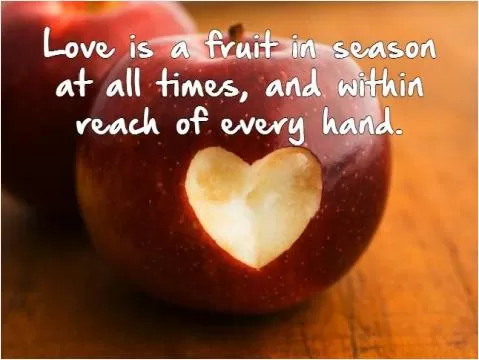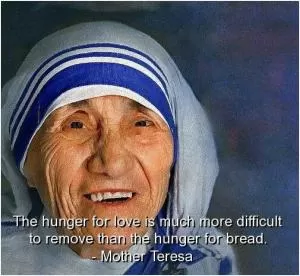I have found the paradox, that if you love until it hurts, there can be no more hurt, only more love

I have found the paradox, that if you love until it hurts, there can be no more hurt, only more love
Mother Teresa, also known as Saint Teresa of Calcutta, was a beacon of love and compassion in a world often filled with pain and suffering. Her life's work was dedicated to serving the poorest of the poor, the sick, and the dying, and she did so with unwavering love and devotion. It is through her example that we can truly understand the paradox of loving until it hurts, and how in doing so, we can find a deeper sense of love and fulfillment.Mother Teresa once said, "I have found the paradox, that if you love until it hurts, there can be no more hurt, only more love." This statement encapsulates her entire philosophy on love and service. For Mother Teresa, love was not just a feeling or an emotion, but a way of life. She believed that true love was selfless and sacrificial, and that by giving of oneself completely, one could transcend the pain and suffering of the world and experience a profound sense of joy and fulfillment.
Throughout her life, Mother Teresa faced countless challenges and obstacles in her mission to serve the poor and the marginalized. She witnessed unimaginable suffering and poverty on a daily basis, and yet she never wavered in her commitment to love and serve those in need. It was through her willingness to love until it hurt, to give of herself completely, that she was able to find a deeper sense of love and purpose in her life.
Mother Teresa's example teaches us that true love is not always easy or comfortable. It requires sacrifice, selflessness, and a willingness to endure pain and suffering for the sake of others. But in doing so, we can experience a profound sense of joy and fulfillment that transcends our own personal struggles and challenges. By loving until it hurts, we can find a deeper sense of connection and compassion for others, and ultimately, a greater sense of love for ourselves.












 Friendship Quotes
Friendship Quotes Love Quotes
Love Quotes Life Quotes
Life Quotes Funny Quotes
Funny Quotes Motivational Quotes
Motivational Quotes Inspirational Quotes
Inspirational Quotes